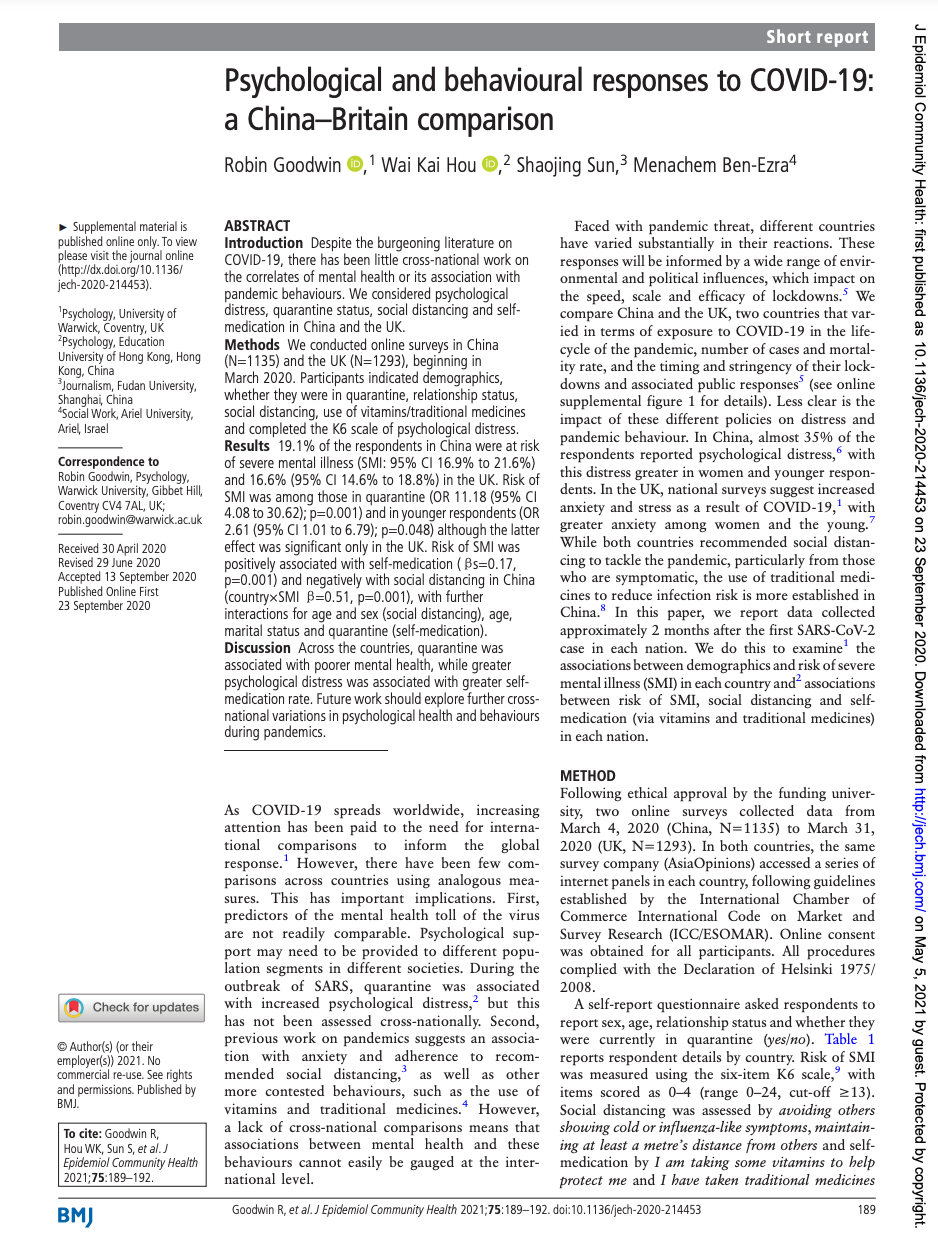Psychological and behavioural responses to COVID-19: a China-Britain comparison
Description
Despite the burgeoning literature on COVID-19, there has been little cross-national work on the correlates of mental health or its association with pandemic behaviours. We considered psychological distress, quarantine status, social distancing and self-medication in China and the UK.
We conducted online surveys in China (N=1135) and the UK (N=1293), beginning in March 2020. Participants indicated demographics, whether they were in quarantine, relationship status, social distancing, use of vitamins/traditional medicines and completed the K6 scale of psychological distress.
19.1% of the respondents in China were at risk of severe mental illness (SMI: 95% CI 16.9% to 21.6%) and 16.6% (95% CI 14.6% to 18.8%) in the UK. Risk of SMI was among those in quarantine (OR 11.18 (95% CI 4.08 to 30.62); p=0.001) and in younger respondents (OR 2.61 (95% CI 1.01 to 6.79); p=0.048) although the latter effect was significant only in the UK. Risk of SMI was positively associated with self-medication (βs=0.17, p=0.001) and negatively with social distancing in China (country×SMI β=0.51, p=0.001), with further interactions for age and sex (social distancing), age, marital status and quarantine (self-medication).
Across the countries, quarantine was associated with poorer mental health, while greater psychological distress was associated with greater self-medication rate. Future work should explore further cross-national variations in psychological health and behaviours during pandemics.
Additional languages

DETAILS
Publication
Authors
Emergency
Scope
Language
Region
Keywords

